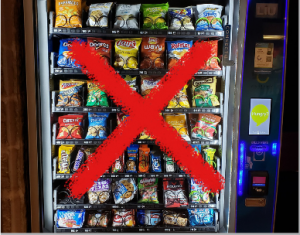By Ludvig Brisby Jeppsson
Arts & Entertainment Editor
Sororities, fraternities, athletic teams, clubs, organizations. LIU and college life in general offer lots of possibilities to join a group or team. And those are just the official ones. Then there are all the other groups of people you come across; your dormitory, your different classmates and, of course, your friends.
Motivational speaker Jim Roth has said, “You are the average of the five people you spend most time with.” Even though that might be a stretch, there is no question that your closest people will affect you and you will affect them, especially if your group has a formulated purpose or goal.
Being part of a group is often touted as a positive experience. Job descriptions often require teamwork, job interviews with a group exercise is increasing in popularity, and being able to work in a team always scores high when different employers rank the most important skills they seek in hiring.
Being part of a bubble is viewed with more scepticism. Often used to describe groups of people that have their own view of the world, like religious sects and other inverted societies, the term implies being a bit cut off or isolated from the rest of the world.
In some extreme cases, the negativity connected with the term is probably well earned. There are bubbles where bullying and brainwash is used to manipulate people, especially in groups with strong hierarchal structure. But what is more interesting and relevant is the affect and peer pressure we experience on a daily basis, in the bubbles that don’t have rules or a clear hierarchal structure, like our closest friends.
Spending time with people sharing your passion, interest or opinion often amplifies that attribute. This can lead to pushing yourself, trying harder and achieving more than ever before, or even doing something you didn’t think mattered that much to you. And often this is fine, at least while you’re in the bubble with likeminded people. It is no problem setting a specific play as your life goal if you are on the football team. It is nothing weird with viewing rituals in a fraternity as the most important thing in the world if you are a member. It is when leaving that environment, that you may question whether those things really are important to you.
Often this strong drive found in mem- bers of a bubble are related to competition, and getting approval from within the group. And just like in business where corporate success can be explained by the surrounding environment and clusters, where the competitive environment is supposed to be a key factor in development and performance, the world seems to apply the same thought when it comes to people.
Bringing “the best” people together, whether in sports, academics or work, is supposed to make people evolve and perform better. But this competitive environment can also be repressive and break people. So while this strategy may be successful on a group level, it is harder to draw conclusions about what is best for every individual. This dilemma is sometimes phrased: it is better to be the big fish in the small pond than a small fish in a big pond.
Another important aspect of your bubble is happiness. According to Daniel Ariely, professor in behavioural Economics at Duke University, relativity is everything when it comes to being satisfied with life. Ariely stated that you are best off not choosing to hang out with the best and the brightest, but rather with slighter inferior versions of yourself, since this will make you feel more satisfied when comparing everything from salary to appearance.
Yet, there seem to be ways of gaining advantages if you choose your bubble wisely. Maybe it will give you that extra motivation that you need to pass an exam, run the best organization or win a national tournament. And you can probably avoid the downside by regularly stepping outside the bubble, meet someone else on campus and experience a different perspective.






Be First to Comment